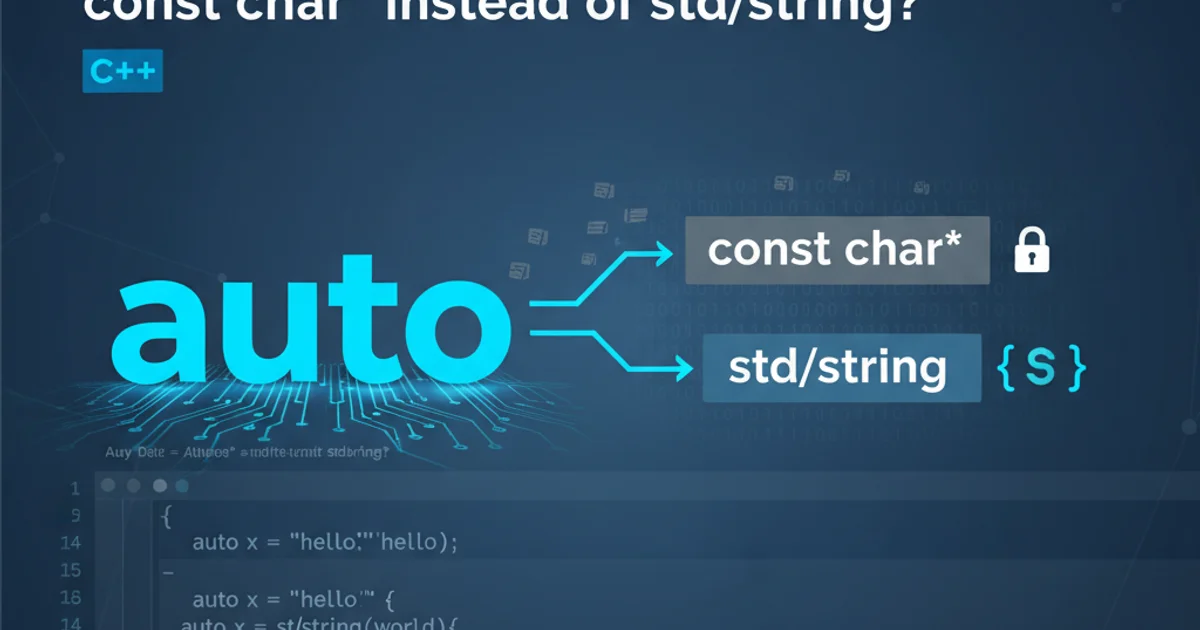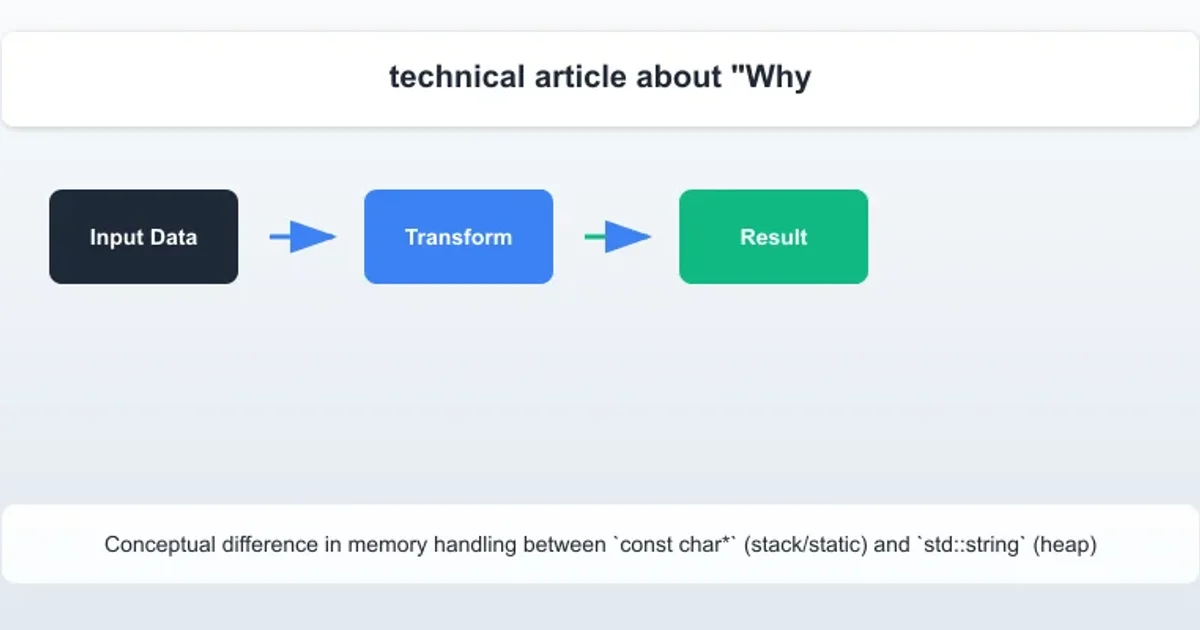Why does "auto" declare strings as const char* instead of std::string?
Categories:
Understanding 'auto' with String Literals: Why 'const char*' and Not 'std::string'?

Explore the nuances of C++ 'auto' keyword when initializing variables with string literals, and why it defaults to 'const char*' instead of 'std::string'.
The auto keyword, introduced in C++11, is a powerful tool for type deduction, allowing the compiler to automatically determine the type of a variable based on its initializer. While auto often simplifies code and improves readability, its behavior with string literals can sometimes be a source of confusion for developers expecting a std::string. This article delves into why auto deduces string literals as const char* and not std::string, and how to achieve the desired std::string type when using auto.
The Nature of String Literals in C++
In C++, a string literal (e.g., "hello world") is fundamentally an array of const char characters, terminated by a null character. When used in an expression, this array often decays into a pointer to its first element, specifically a const char*. This behavior is deeply rooted in C's compatibility and the language's design principles, where string literals are stored in read-only memory segments.
const char* myLiteral = "Hello"; // Explicitly a const char*
char arr[] = "World"; // An array of chars
// The type of "Hello" is const char[6] (including null terminator)
// When assigned, it decays to const char*
String literal type in C++
How 'auto' Deducts Types
The auto keyword performs type deduction based on the initializer's type, following a set of rules similar to template argument deduction. When auto encounters a string literal, it sees it as a const char[] which then decays to a const char* during the deduction process. The compiler doesn't implicitly convert this const char* to a std::string because std::string is a class type that requires construction, not a fundamental type that auto would automatically infer from a raw literal.
flowchart TD
A["String Literal (e.g., \"Hello\")"]
B["Compiler sees const char[]"]
C["Array decays to pointer"]
D["auto keyword applies deduction rules"]
E["Resulting type: const char*"]
A --> B
B --> C
C --> D
D --> EType deduction process for string literals with 'auto'
auto s1 = "Hello"; // s1 is deduced as const char*
// To verify the type:
// std::cout << typeid(s1).name() << std::endl; // Output might be 'PKc' (pointer to const char)
// This will NOT compile, as s1 is not a std::string:
// s1.append(" World");
Demonstrating 'auto' deduction for string literals
Achieving 'std::string' with 'auto'
If your intention is to use auto to declare a std::string initialized with a string literal, you need to explicitly tell the compiler to construct a std::string. This can be done in a few ways, primarily by using the std::string constructor or the s suffix for string literals (C++14 and later).
#include <string>
// Method 1: Explicitly construct std::string
auto s2 = std::string("World"); // s2 is deduced as std::string
// Method 2: Use the string literal operator (C++14 and later)
// Requires 'using namespace std::literals::string_literals;'
// or 'using namespace std::string_literals;'
auto s3 = "C++"s; // s3 is deduced as std::string
// Now you can use std::string methods:
s2.append("!");
s3 += "14";
Ways to make 'auto' deduce 'std::string'
""s string literal operator, remember to include <string> and either using namespace std::literals::string_literals; or using namespace std::string_literals; to make it available.Why This Design Choice?
The design choice to treat string literals as const char* by default, even with auto, is primarily for efficiency and backward compatibility. Implicitly converting every string literal to a std::string would incur the overhead of constructing a std::string object, which involves dynamic memory allocation. For many scenarios, especially in performance-critical code or when interfacing with C APIs, a const char* is sufficient and more efficient. The auto keyword respects this fundamental type behavior rather than introducing implicit conversions that could hide performance implications.

Conceptual difference in memory handling between const char* (stack/static) and std::string (heap)